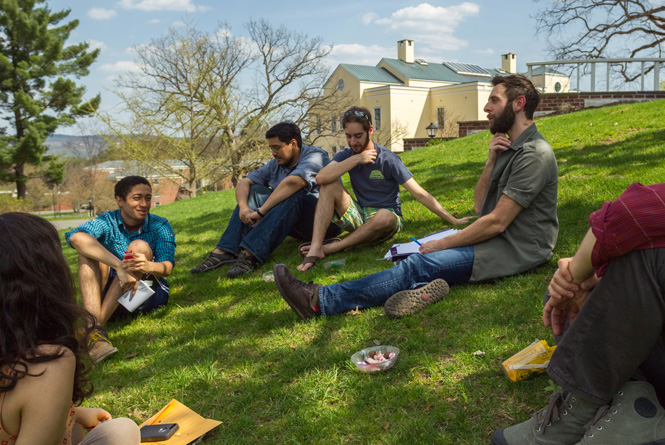December 19, 2015

Amherst College has been awarded a $1.5 million grant from the Andrew W. Mellon Foundation to adapt residential liberal arts education to a new population of students and changing circumstances. The grant will allow the College to enhance its longstanding commitment to rigorous education in the liberal arts and expand its efforts to create a vibrant and inclusive community in which diversity benefits all students, faculty and staff. The grant follows a successful, decade-long approach to recruitment and financial aid that has made Amherst’s student body one of the most diverse among its peer institutions. The grant also comes as a generational shift in the faculty has brought a new wave of professors to campus.
The foundation funded the grant proposal, which was submitted in August, to provide funding over nine semesters, beginning in spring 2016, to support Amherst’s holistic approach to rethinking residential liberal arts education, including three areas of the College’s work:
- Developing the capacity of an increasingly diverse faculty to meet the needs of today’s population of students, drawing on insights from research into high-impact practices and the science of learning and on a long-established culture of great teaching.
- Expanding curricular and co-curricular opportunities for students to learn by doing, including more opportunities to identify and solve problems collaboratively and to connect their academic growth with possible careers.
- Reimagining living and learning on a residential campus, with a focus on enabling faculty, staff and students to collaborate, build community, participate in difficult conversations, and address questions of consequence from a range of perspectives.
“We are grateful to the Mellon Foundation for providing this generous support,” said President Biddy Martin. “It will help us ensure that all students have what they need to be successful at Amherst, that every student reaps the benefits of our diversity, and that the College is changed for the better as a result of it.”
Today, 43 percent of Amherst students identify themselves as students of color, and another 10 percent identify as international students.
Among other initiatives, the funding will enable Amherst to:
- Engage more than half of tenure-line faculty in seminars that explore the best methods of teaching across learning styles.
- Hire a second instructional designer to help faculty incorporate new pedagogies into their courses. By mid-2017, the College expects to have a core team of specialists in place to support innovation in teaching and learning.
- Support at least 12 academic departments or programs in bringing fresh pedagogical approaches to the curriculum.
- Create a program in which students work in teams with faculty, staff and alumni, using principles of design thinking to develop solutions to campus and community challenges.
- Bring in local and national experts to help faculty, students and staff learn to lead difficult conversations and contribute to local and national debates on issues important to them.
The College’s work on the goals specified in the grant is ongoing and will include new steps this spring, when the dean of the faculty will add new faculty seminars and which will be followed by calls for proposals to integrate high-impact practices at the departmental level.